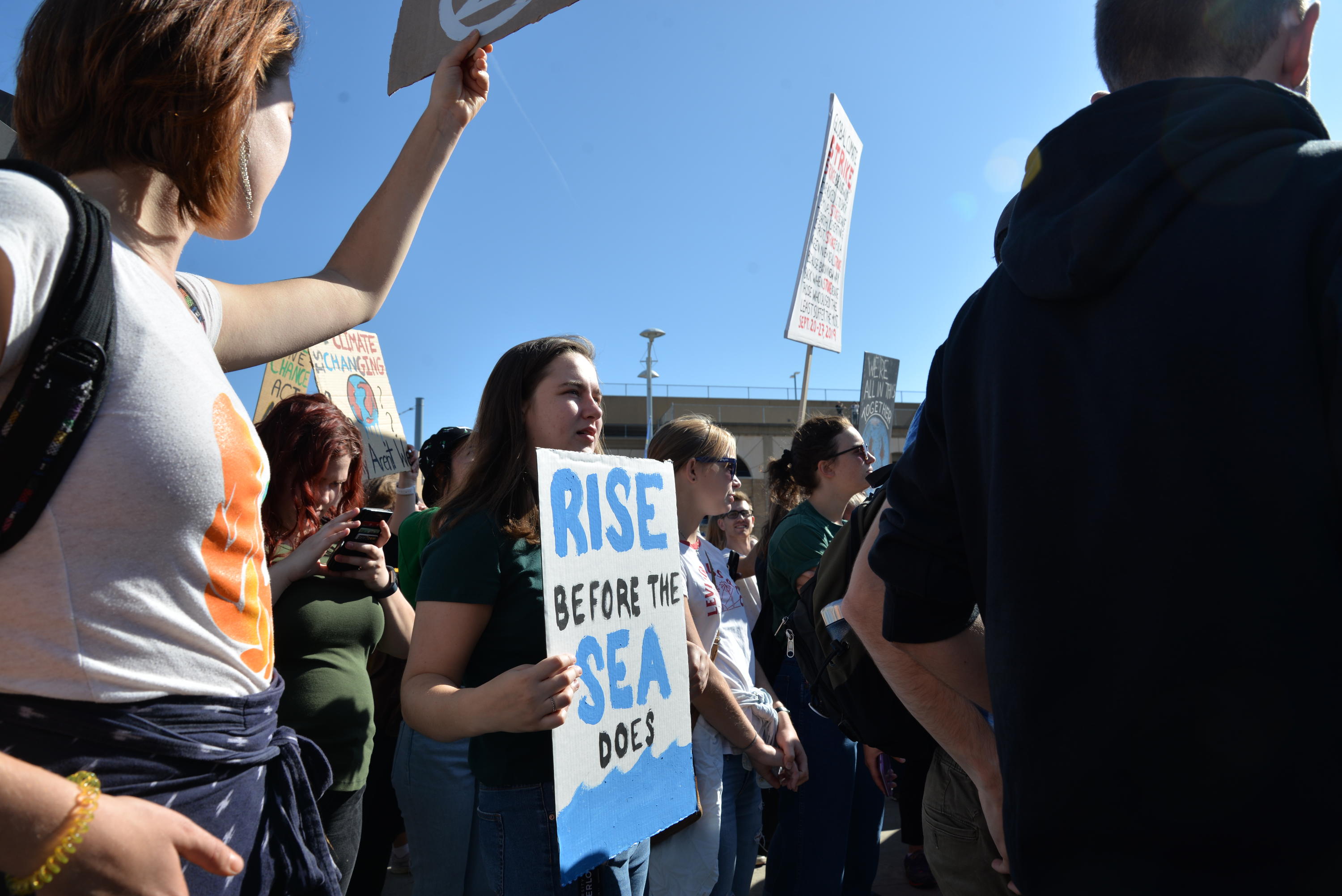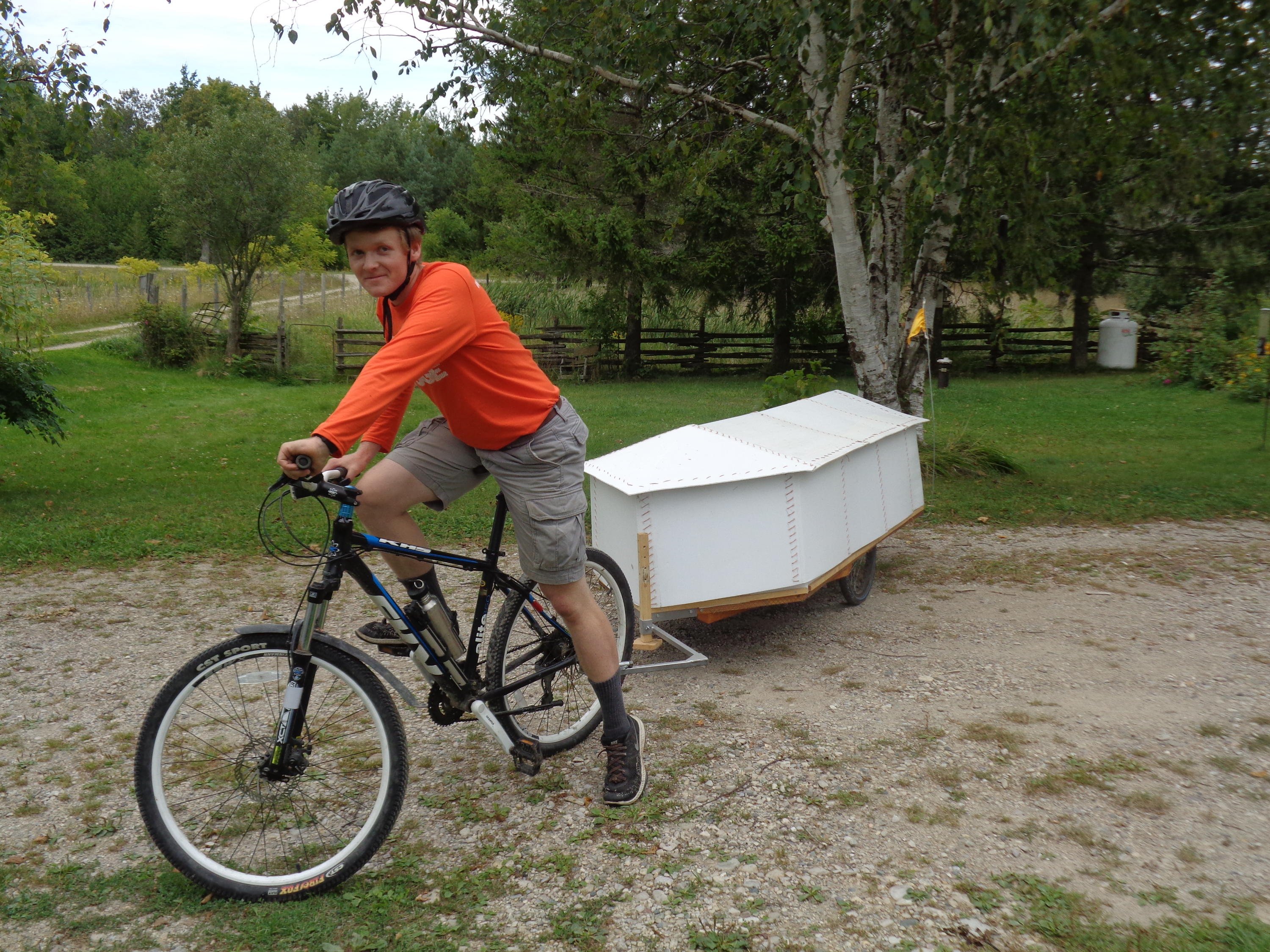
On September 27, 2019, around 80 Grebel students, staff, and faculty took part in the Global Climate Strike in Waterloo. Participants from Grebel walked with hundreds of University of Waterloo students, staff, and faculty to Waterloo Public Square, where they joined thousands ofother participants in the strike. As they walked, people talked, called out chants, and some Grebel students even belted out hymns.
In Waterloo, over 4000 strikers gathered for three hours of singing, chanting, and speeches. Professor Mark Vuorinen, Chair of the Music Department at Grebel, led the KW Symphony and choirs from Grebel and Kitchener-Waterloo in performing Beethoven’s Ode to Joy with much of the crowd joining in. It was a powerful performance that evoked an emotional response from many of the strikers. Speakers from the Indigenous community, local professors, students from every level of education, and others urged the crowd to make changes on an individual level, to fight for change on a systemic level, and to vote for change in the upcoming federal election.
Grebel students attended the strike for a variety of reasons. “I was motivated to come to the strike because of my privilege,” said Madeleine Neufeld, a fourth year Peace and Conflict Studies student. “Friends of friends have died in floods in Indonesia this past rainy season because of climate change. They can’t speak up so I will.”
Rebecca Shelley, a second year Environment, Resources, and Sustainability student, explained that she normally prefers to work in the background to make change happen, but the importance of this issue pushed her to participate in the strike. “I believe that we are meant to enjoy the world and be stewards of it, not exploit and destroy the amazing gift we have been given,” she added.
“Hope comes from action,” remarked Katie Goerzen Sheard, who is in her second year of Social Development Studies. “The actions of people today in KW and all over the world make me hopeful that we can continue to act and make changes towards living sustainably and justly. We have a lot more work, but this strike was a reminder that we are surrounded by others and we can support each other in making change.”
Grebel has a history of early adaptation for environmental changes. Recycling was introduced in the College in the 1980s, before the Blue Box recycling program even came to the University of Waterloo. In the early 2000s, the Grebel Student Council created the position of Environment Representative on the Larger Leadership Team – a position that still exists today. In 2009, students again took steps to make Grebel greener by initiating the installation of three solar panels on Grebel’s roof that pre-heat Grebel’s hot water. In 2010, the College was the first participant in a highly successful pilot project that tested institutional-level organic waste collection through the Region of Waterloo Green Bin program. Just last year, a team of five Grebel students applied for and were awarded grants to add a green roof to the College’s current kitchen expansion. Most recently, the Mennonite Archives of Ontario, located in the Milton Good Library at Grebel, closed as a part of the strike to raise awareness of the effects of climate change on cultural heritage and community memory.

Many Grebel staff and faculty walk or bike to work. President Marcus Shantz rides a folding bike in combination with taking the new ION train. Rebekah DeJong, Student Life and Recruitment Coordinator, bikes to work, and even biked to Grebel’s All-College retreat 60 kilometres away. Rebekah listed a variety of motivations behind her biking, including “the opportunity to appreciate the scenery and reduce my carbon footprint.”
These small, every-day actions taken by Grebel students, faculty, and staff reflect several of the College’s core values, including responsible citizenship, global engagement, and stewardship of creation. Hope does come from action. Whether participating in a climate strike or biking to work, the people of Grebel are leading lives that inspire hope.